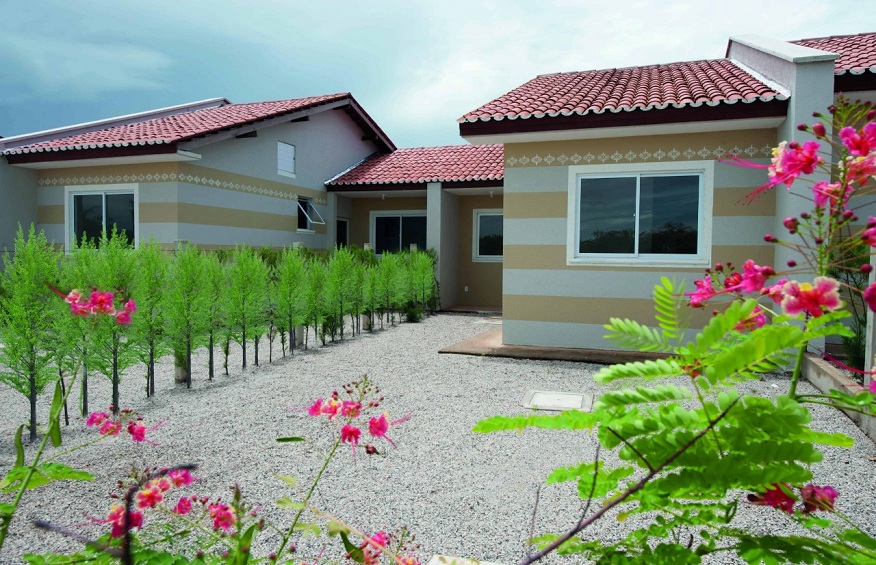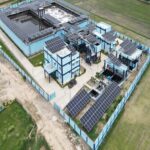
Why is smart infrastructure technology important?
Innovative infrastructure technology is a critical issue in the dynamic current world. The use of smart infrastructure technology for modern progress in terms of quality of life in urban areas and sustainable development is imperative.This article discusses the importance of smart infrastructure management and how it helps create smart and affordable houses with tech-based solutions.
Smart infrastructure management and its essence
Smart infrastructure integrates state-of-the-art technology into critical aspects of our daily lives, encompassing transportation, electricity, water, and communication.Incorporating new technologies such as the Internet of Things (IoT), data analytics, and artificial intelligence will improve these systems’ effectiveness, sustainability, and overall quality. This aims to develop a more interactive, green, and intelligent city.
The power of smart infrastructure technology
- Efficiency: Smart infrastructure technology improves efficiency for different sectors. For example, in transportation, smart traffic management systems rely on real-time data, which optimizes traffic flow to minimize congestion, thereby saving commuters’ time. Furthermore, these systems maximize fuel efficiency and reduce air pollution, promoting a cleaner and healthier urban life. Smart grids minimize energy waste in distribution as consumers pay less for electricity. In essence, this translates into reduced power expenses among residents and companies, leading to increased power affordability across the region.
- Sustainability: Smart infrastructure technology is a vital tool in addressing the sustainability issue for the world. Smart buildings incorporate energy-efficient designs and implement sensors, allowing them to adjust based on the current environment, reducing carbon emissions. Water management systems are employed to track water usage and immediately identify leaks to ensure responsible utilization of this precious resource. Sustainable practices are crucial for building intelligent and affordable houses, as they help to cut down on utilities and the environmental burden of housing in line with an overarching agenda of ecologically responsible urban development.
- Data-Driven Decision-Making: Smart infrastructure technology leads to a large data pool that can be exploited to improve decision-making. Through data analysis, urban planners can optimize city design patterns, locate congestion points, and upgrade transportation networks to make traffic movement smoother and travel more accessible. Real-time IoT data can improve public safety and emergency management and provide speedier and more robust solutions in critical situations. More effective and responsive urban management will result in safer, more efficient, and better-organized cities through data-driven decision-making.
- Quality of Life: With innovative infrastructure technology, urban areas enjoy a better quality of life by transforming public services. Smart waste management systems ensure that the waste is cleared optimally, leading to less trash lying around in the streets and thus increasing the general cleanliness of urban areas. Smart street lighting systems save energy and promote more secure streets by increasing ambiance and visibility. The technologies increase comfortability in urban life and make it environment-friendly in terms of building intelligent, cheap houses that enhance quality for the residents. Several qualities constitute comfortable living, and safe, clean, and well-maintained urban environments fall under these qualities.
- Economic Growth: Deploying smart infrastructure technology in the urban housing sector can spur innovation and entrepreneurship, as this would create avenues for economic activities. Urban centers that invest in a technologically modern environment attract tech companies and startups. Furthermore, smart systems improve efficiency in transportation and logistics processes, which is very cost-effective for businesses. This translates into streamlined supply chains, reduced congestion, lower operational costs, and better competitive positioning. Advanced infrastructure technology is a driver of growth and wealth in a region in urban centers.
Affordable Houses with Smart Solutions
Incorporating smart solutions for affordable housing development into the urban planning process is essential. Smart infrastructure technology is an integral component of achieving this affordability.
- Energy Efficiency: Smart solutions in affordable houses are meant for energy efficiency. Smart thermostats, energy-efficient lighting, and well-insulated structures minimize energy usage, lowering utility costs for the residents. This provides a form of energy saving that makes it affordable for people to live there.
- Water Conservation: The smart water management systems in housing developments help decrease water use. Sensors combined with real-time monitoring allow water to be used optimally. This reduces water bills for residents, ensuring responsible use of this resource is exercised despite water shortage problems in some areas.
- Lower Maintenance Costs: A smart infrastructure system would decrease total housing maintenance costs. For example, predictive maintenance systems can indicate problems long before they are catastrophic. This assists in saving money for residents and keeps houses in a good state so that their value does not depreciate.
- Enhanced Security: Security management smart solutions in housing development are less expensive as no extra security is required. Smart surveillance cameras, access control systems, and alarms give residents peace of mind and make their home choices safer and more preferable.
- Community Services: Smart solutions in affordable housing may encompass intelligent waste management, efficient public transport, community Wi-Fi, and other community services. These services enhance the lives of residents and, at the same time, cut their costs.
The Smart Infrastructure Technology of the Future
Urbanization will continue to expand, and as this is the case, the role of smart infrastructure technology will further increase. Such smart cities utilizing technology to improve sustainability, efficiency, and quality of life will become more livable and workable. As a result, creating affordable homes with intelligent solutions is vital to addressing the requirements of an expanding metropolitan citizenry.
Smart infrastructure technology cannot only be seen as a trend but as a need for a living environment reacting to the challenges of the 21st century. The next move will be using technology in our cities as we endeavor to create a livable, affordable, and quality environment. It will also turn around how we live together and rebuild our understanding of the cities we dwell in.













